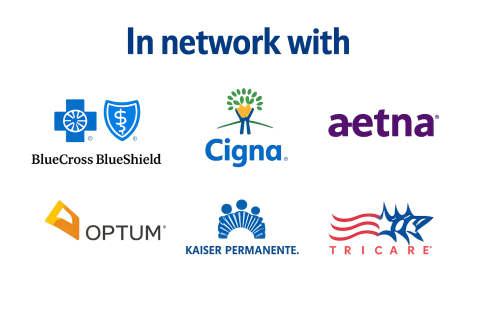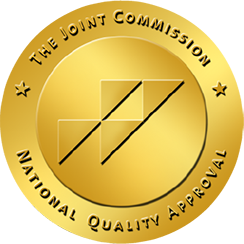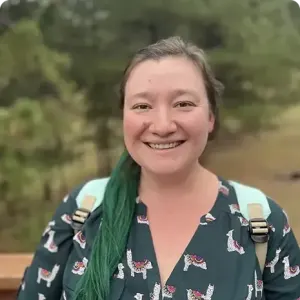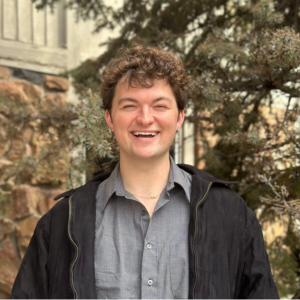








Red Rock Recovery Center
Verified Center
This provider's information has been quality-checked by Recovery.com's Research Team for accuracy and completeness, including center verification through appropriate third-party organizations.
Treatment Focus
This center treats substance use disorders and co-occurring mental health conditions. Your treatment plan addresses each condition at once with personalized, compassionate care for comprehensive healing.
Primary Level of Care
Offering intensive care with 24/7 monitoring, residential treatment is typically 30 days and can cover multiple levels of care. Length can range from 14 to 90 days typically.
Treatment Focus
This center treats substance use disorders and co-occurring mental health conditions. Your treatment plan addresses each condition at once with personalized, compassionate care for comprehensive healing.
Primary Level of Care
Offering intensive care with 24/7 monitoring, residential treatment is typically 30 days and can cover multiple levels of care. Length can range from 14 to 90 days typically.
Provider's Policy
Red Rock Recovery is in-network with BlueCross BlueShield, Cigna, Aetna, Optum, Kaiser, and Tricare, and works with many other insurance providers.
Red Rock Recovery Center
Red Rock Recovery Center
About Red Rock Recovery Center
Red Rock Recovery is an in-network facility with BlueCross BlueShield, Cigna, Aetna, Optum, Kaiser, and Tricare. Red Rock Recovery Center helps clients with substance use and co-occurring mental health disorders navigate early recovery using a compassionate, evidence-based model emphasizing community building and life skills. Their programs are especially effective for clients who’ve struggled to launch into independent adulthood or have experienced chronic relapse. Red Rock’s medical detox, inpatient, outpatient, and sober living each provide structure and accountability while allowing clients to build autonomy and confidence over time.
Treat Conditions from Every Possible Angle
Red Rock uses a diverse combination of therapies to help clients regain their footing. Individual counseling sheds light on thought patterns and beliefs that keep them stuck. Group sessions improve interpersonal skills and help clients learn from others’ journeys. Family therapy strengthens support networks. Outdoor therapy, yoga, and mindfulness re-establish clients’ relationships with their own bodies and the world around them. Discharge planning begins early to ensure support is in place for the next phase of recovery.
Fit Outpatient Care into Daily Life
In addition to detox and inpatient care for substance use disorders, Red Rock provides day treatment (PHP) and intensive outpatient (IOP) programs, with a dedicated IOP for mental health challenges. Clients participate in treatment during the day, allowing most to continue to work, attend school, or care for family. The programs combine medication management, psychotherapy, group therapy, case management, and family support for a comprehensive approach to care.
Heal at the Foot of the Rockies
Clients in detox and inpatient care stay in living quarters that are safe and comfortable for everyone, including LGBTQ+ and non-binary clients. The mountain lodge offers shared rooms with views, chef-prepared meals, streaming services, and a newly renovated fitness center with powerlifting equipment. Outdoor amenities include half-court basketball, sand volleyball, and a gazebo—offering space to recharge, build community, and find moments of peace.

Highlights from the Center
Highlights
These highlights are provided by and paid for by the center.
Nature Lovers
Customized Treatment Plans
Medically Assisted Detox
Addiction Recovery
Center Overview
Treatment Focus
This center treats substance use disorders and co-occurring mental health conditions. Your treatment plan addresses each condition at once with personalized, compassionate care for comprehensive healing.
Joint Commission Accredited
The Joint Commission accreditation is a voluntary, objective process that evaluates and accredits healthcare organizations (like treatment centers) based on performance standards designed to improve quality and safety for patients. To be accredited means the treatment center has been found to meet the Commission's standards for quality and safety in patient care.
Recently helped 1 person via Recovery.com

Red Rock Recovery Center
Recently helped 1 person via Recovery.com
Insurance Accepted
Cash Pay Rates
Estimated Cash Pay Rate
Center pricing can vary based on program and length of stay. Contact the center for more information. Recovery.com strives for price transparency so you can make an informed decision.




Recovery.com Verified Listing
Recovery.com verified that the name, location, contact information and license to operate for this treatment provider are valid and up-to-date.

Joint Commission Accredited

Licensed by Colorado
Recovery.com is an independent, third-party mental health resource. Verification does not imply endorsement and does not guarantee the quality of treatment services.
Meet Your Care Team

Arshad William
Medical Director
M.D.

Hannah Bingler
Clinical Director
LPC, LAC

Azma Holiday
Executive Director
CAT

Max Kenworthy
Lead Primary Therapist
LPC, LAC, MAC

Rachel Sullivan
Primary Therapist
SWC

Laura Di Stefano
Primary Therapist
LPC, LAC

Wendy Tekverk
Primary Therapist
LSW

Mackenzie Roberts
Primary Therapist
LPCC

Eric Elmore
Primary Therapist
LPCC, NCC

Rachel Sullivan
Primary Therapist
SWC

Rustin Howell
Admissions Specialist

Laura Beth Berkhalter
Director of Business Development

Lucas Bailey
Admissions Specialist

Justin Blaylock
Admissions Specialist

Shiloh Kirby
Admissions Specialist

Michael Cook
Alumni Coordinator
Your Care Options
Specializations
Alcohol
Using alcohol as a coping mechanism, or drinking excessively throughout the week, signals an alcohol use disorder.
Detox
Detox fully and safely removes toxic substances from the body, allowing the next steps in treatment to begin with a clean slate.
Benzodiazepines
Benzodiazepines are prescribed to treat anxiety and sleep issues. They are highly habit forming, and their abuse can cause mood changes and poor judgement.
Cocaine
Cocaine is a stimulant with euphoric effects. Agitation, muscle ticks, psychosis, and heart issues are common symptoms of cocaine abuse.
Heroin
Heroin is a highly addictive and illegal opioid. It can cause insomnia, collapsed veins, heart issues, and additional mental health issues.
Methamphetamine
Methamphetamine, or meth, increases energy, agitation, and paranoia. Long-term use can result in severe physical and mental health issues.
Opioids
Opioids produce pain-relief and euphoria, which can lead to addiction. This class of drugs includes prescribed medication and the illegal drug heroin.
Prescription Drugs
It's possible to abuse any drug, even prescribed ones. If you crave a medication, or regularly take it more than directed, you may have an addiction.
Who We Treat
Men and Women
Men and women attend treatment for addiction in a co-ed setting, going to therapy groups together to share experiences, struggles, and successes.
Treatment Services
Day Treatment
In a PHP, patients live at home but follow an intensive schedule of treatment. Most programs require you to be on-site for about 40 hours per week.
Intensive Inpatient
The highest level of care, medically managed intensive inpatient services provides 24-hour nursing and physician care.
Detox
Detox fully and safely removes toxic substances from the body, allowing the next steps in treatment to begin with a clean slate.
Intensive Outpatient Program
In an IOP, patients live at home or a sober living, but attend treatment typically 9-15 hours a week. Most programs include talk therapy, support groups, and other methods.
Licensed Primary Mental Health
Some primary care providers offer mental health diagnosis and treatment. This can prevent patients from developing more serious conditions.
Outpatient
During outpatient rehab, patients attend a structured treatment program while continuing to live at home.
Residential
In a residential rehab program, patients live onsite, with access to daily treatment and 24-hour care. An average stay is 30-90 days.
Approaches
Evidence-Based
A combination of scientifically rooted therapies and treatments make up evidence-based care, defined by their measured and proven results.
Holistic
A non-medicinal, wellness-focused approach that aims to align the mind, body, and spirit for deep and lasting healing.
Strengths-Based
Providers using a strengths-based philosophy focus on the positive traits of their patients, creating a positive feedback loop that grows confidence.
Twelve Step
Incorporating spirituality, community, and responsibility, 12-Step philosophies prioritize the guidance of a Higher Power and a continuation of 12-Step practices.
Therapies
1-on-1 Counseling
Patient and therapist meet 1-on-1 to work through difficult emotions and behavioral challenges in a personal, private setting.
Meditation & Mindfulness
A practiced state of mind that brings patients to the present. It allows them to become fully aware of themselves, their feelings, and the present moment.
Trauma-Specific Therapy
This form of talk therapy addresses any childhood trauma at the root of a patient's current diagnosis.
Mindfulness Therapy
This ancient practice can be mental, emotional, and even spiritual. In meditation, you focus your attention on the present moment without judgement.
Adventure Therapy
This experiential approach uses the physical and emotional challenges of outdoor activities as tools for personal growth.
Attachment-Based Family Therapy
ABFT is a trauma-focused therapy that teaches you to form healthy relationships by rebuilding trust and healing attachment issues formed in childhood.
Experiential Therapy
With this approach, patients heal by doing. Therapists help patients process difficult emotions to speak, using guided activities like art or dance.
Conditions We Treat
Schizophrenia
Schizophrenia is a serious mental health condition that causes hallucinations, delusions, and disordered thinking.
Grief and Loss
Grief is a natural reaction to loss, but severe grief can interfere with your ability to function. You can get treatment for this condition.
Personality Disorders
Personality disorders destabilize the way a person thinks, feels, and behaves. If untreated, they can undermine relationships and lead to severe distress.
ADHD, ADD
ADHD is a common mental health condition caused by dopamine imbalance. Common symptoms include inattention, hyperactivitiy, and impulsivity.
Anxiety
Anxiety is a common mental health condition that can include excessive worry, panic attacks, physical tension, and increased blood pressure.
Bipolar
This mental health condition is characterized by extreme mood swings between depression, mania, and remission.
Codependency
Codependency is a pattern of emotional dependence and controlling behavior. It's most common among people with addicted loved ones.
Depression
Symptoms of depression may include fatigue, a sense of numbness, and loss of interest in activities. This condition can range from mild to severe.
Substances We Treat
Alcohol
Using alcohol as a coping mechanism, or drinking excessively throughout the week, signals an alcohol use disorder.
Benzodiazepines
Benzodiazepines are prescribed to treat anxiety and sleep issues. They are highly habit forming, and their abuse can cause mood changes and poor judgement.
Chronic Relapse
Consistent relapse occurs repeatedly, after partial recovery from addiction. This condition requires long-term treatment.
Co-Occurring Disorders
A person with multiple mental health diagnoses, such as addiction and depression, has co-occurring disorders also called dual diagnosis.
Cocaine
Cocaine is a stimulant with euphoric effects. Agitation, muscle ticks, psychosis, and heart issues are common symptoms of cocaine abuse.
Drug Addiction
Drug addiction is the excessive and repetitive use of substances, despite harmful consequences to a person's life, health, and relationships.
Ecstasy
Ecstasy is a stimulant that causes intense euphoria and heightened awareness. Abuse of this drug can trigger depression, insomnia, and memory problems.
Heroin
Heroin is a highly addictive and illegal opioid. It can cause insomnia, collapsed veins, heart issues, and additional mental health issues.
Methamphetamine
Methamphetamine, or meth, increases energy, agitation, and paranoia. Long-term use can result in severe physical and mental health issues.
Languages
Aftercare
Care Designed for Your Needs
Personal Amenities
Amenities
Special Considerations
Family Member Stays
Treatment providers welcome family members to stay on-site to better the experience and success of patients and their families as a whole.
Flexible technology policies
Centers with flexible technology policies allow professionals to stay in touch with work and give patients a greater sense of connection and normalcy.
LGBTQ group
Group therapy unites LGBTQ+ patients in a safe and culturally competent setting, encouraging peer support under the expert leadership of a therapist.
Activities
Yoga
Yoga is both a physical and spiritual practice. It includes a flow of movement, breathing techniques, and meditation.
Off-Site Activities
Off-Site Amenities
Recently helped 1 person via Recovery.com
Learn More About the Center
Facilities Video Tours
Look around each of Red Rock’s facilities: inpatient/detox, outpatient, and sober living.
6 Reasons Why it’s Unsafe to Detox at Home
Explore the dangers of attempting to detox at home versus the safer, more effective alternative.
Supporting Loved Ones in Alcohol Rehab
Read about the importance of family involvement throughout the recovery process.
Connection's Vital Role in Recovery
Learn how a robust support network provides invaluable encouragement and accountability.
What people are saying
Treatment
5.0
Accommodations
5.0
Food & Nutrition
5.0
Value
5.0
Cameron
Reviewed 09/06/24
Review from Rehabs.com
Cameron
Reviewed 08/28/24
Referring Professional
•Consultant





